
Washington: On August 23, Matthew Kroenig, deputy director of the Atlantic Council’s Scowcroft Center for Strategy and Security, moderated an online discussion on Afghanistan one year after the fall of Kabul.
Admiral James Stavridis, USN (ret) 16th Supreme Allied Commander of NATO who oversaw operations in Afghanistan, began his remarks with praise for the Afghans who assisted the United States in Afghanistan for the past 20 years and now reside in the US. “Here you have an extraordinary group of people who have managed to get out of Afghanistan…and find their way to the United States,” he said. “These are brilliant, motivated people and they are going to succeed here. This will be good for our country.”
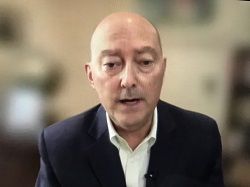
Adm James Stavridis |
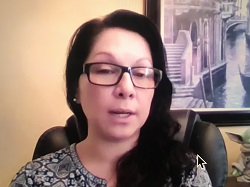
Lyla Kohistany |
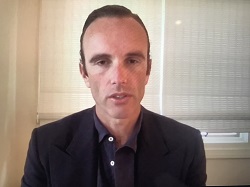
Elliot Ackerman
|
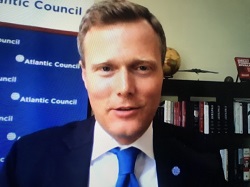
Matthew Kroenig |
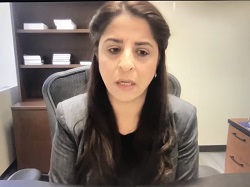
Nilofar Sakhi |
But the extremely chaotic withdrawal of US troops, he fears, may have a chilling effect on how Americans think about future US involvement in overseas missions. The real question is to what degree the US might be involved in global conflicts, he noted.
Broadly speaking, “our allies were discouraged” watching the way the US exited Afghanistan, Stavridis said. “Our opponents, however, were emboldened…and I personally think you can drop a plumbline from the events in August to the following February when Putin decided to invade Ukraine. The key is to learn the right lessons from this, not the wrong lessons.”
The admiral was a strong proponent of maintaining 10,000 coalition troops in Afghanistan. “The Europeans would have gladly put up 5,000 to 7,000,” he asserted. “We could have made up the balance and provided intelligence, logistics and ongoing engagement.”
Elliot Ackerman, US Marine Corp veteran and author of The Fifth Act: America’s End in Afghanistan, summed up the frenzied ending of America’s longest war in one word: “a tragedy!”
Like many veterans, journalists and activists, as the country was falling to the Taliban, Ackerman’s network “lit up with people I knew asking for help,” he said, as everyone wanted to leave.
In The Fifth Act, he tackles the theme of what it means to not leave anyone behind in a war. “This is a code really central in the US military, but is not unique to the US military,” he explained. “It is really an idea which is as old as war. Last summer caused me to reflect on what does it mean to me to leave no one behind and what does it mean to our nation to leave no one behind.”
While there is a sense one year out that America wants to turn the page on Afghanistan and many believe there is nothing else to be done for the country, “I think that is misguided because there is still a lot to be done,” he emphasized.
Ackerman recommended that Americans reassess their way of conducting wars in the future. “I think that waging wars where a society at large does not have skin in the game probably isn’t the way to wage war going forward because it leads to these types of 10-, 20-year conflicts,” he argued.
Nilofar Sakhi, a non-resident senior fellow at the Atlantic Council and author of Human Security and Agency: Reframing Productive Power in Afghanistan, assessed the current situation on the ground in Afghanistan.
“The Taliban takeover was a tragedy for Afghans, particularly for the educated, progressive class and the people who were the products of those last 20 years,” she said. “The replacement of a republic, though a very fragile system and a very new republic, by a totalitarian system and a group like the Taliban…was not good news for Afghanistan…especially for a particular segment of society who believed in democracy and the rule of law and for the educated class of the society…and for women – 50 percent of the population – who have been deprived of their basic rights and needs.”
Even though the nature of insecurities has changed, there is still violence – detentions, killings of minorities and groups who are raising their voices against the system, she added.
Regionally, there have been changes since the Taliban took over, she noted. “China is expanding its role in the region; Russia invaded Ukraine and other countries are realigning their relationships with the emerged powers.”
“Overall, the situation is still very grim,” Sakhi said. “There is reporting about better security and reduced corruption, but I would argue that the security crises are still dire.”
Navy veteran and Atlantic Council senior fellow Lyla Kohistany, head of the non-profit Honor the Promise, noted that, unlike Afghan interpreters who speak English well and are eligible for the Special Immigrant Visa, many of our “special operations partners” do not speak English fluently and the majority are here through humanitarian parole.
While humanitarian parole status allows them to work with an employment authorization document, the uncertainty of what will happen when the humanitarian parole expires potentially impacts the way that employers feel about hiring Afghans, she explained.
Also troubling, she added, is the asylum process, which is complicated and expensive, as attorneys are asking upwards of $10,000 per Afghan head of household to file an application.
“I am proud of veteran and military-affiliated communities that have come out to all of the events we have had across the United States, focusing a light on our Afghan partners and what communities can do at the local level,” Kohistany noted, “but we need national policies that will address the shortcomings.”
First and foremost, to improve the situation, she stressed, is for Congress to pass the Afghan Adjustment Act. “The sense of worry that Afghans have would be alleviated tremendously to know that they are not going to be potentially kicked out of the United States,” she said. The legislation would also provide them a pathway to citizenship.
Kohistany urged everyone to open up their communities to Afghans. “They need an opportunity to actually learn about American culture,” she said. “If you see an Afghan, reach out.”
(Elaine Pasquini is a freelance journalist. Her reports appear in the Washington Report on Middle East Affairs and Nuze.Ink.)

